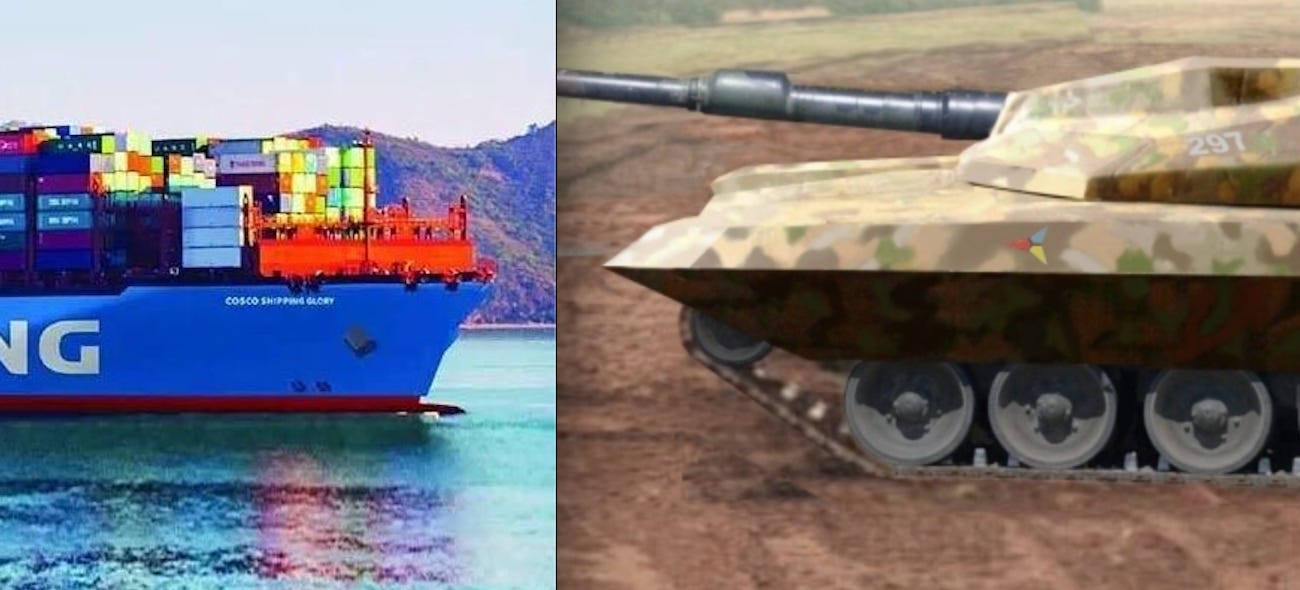Before cars were computerised, motorists would tinker with their engines. My dad was a dab hand. “There are really only three things in a car,” he would say, “the burner — the carburettor and pistons — the fuel feed and the brakes. The rest, you don’t tinker with.” To help the avid amateur mechanic, a firm called Haynes would produce manuals, with cut-away drawings and photos to tell you how to do your tinkering.
I was mildly amused in preparing this article to discover that they also produced a “manual” for Stephenson’s Rocket, the first successful commercial steam locomotive in the world. It won a trial at Rainhill, near Liverpool, in 1829, and, since then, first, locomotives and, subsequently, virtually anything else that produced heat and motion, has been pumping filth into the world’s air. Except electric cars. They pump no filth into the air. Instead, electrical generating stations do that for them.
At one time, I read somewhere about a novelty item, which I have seen myself in railwayana stores, which is a can containing steam from the Rocket. In there, in the tin. Costs a couple of pounds.
The writer of whatever it was where I read this opined that there was no fraud — even though no one buying the tin would believe that, upon opening it, a cloud of steam would be emitted. But, of all the molecules of water that were ever processed in the Rocket’s boiler, it could be virtually guaranteed that at least some of them would be found in the air that we breath to this day and, therefore, there was a high likelihood that the tin contained at least some steam from the Rocket. Cute. But frighteningly true.
When the Rocket chugged down the rails at Rainhill, neatly taking out a member of parliament as it did so, it will have emitted huge plumes of smoke, and I do wonder if, at the time, anyone who had flocked to see the sight would have questioned, “Where, exactly, does all that filth disappear to?” A conservationist now travelling back in time to be there to hear such enquiry could now tell them with absolute certainty, “It will be breathed by everyone on Earth for the next two hundred years and more.”
At the time, however, it simply disappeared. To nowhere.
When we drop litter or chuck a cola can into the sea, it also disappears. From view, anyway. But it too, doesn’t disappear totally. It may rust away at the bottom of the sea, like many a forlorn ship has done in its time. But even wooden ships can get raised from the icy deep these days, which sunk in 1500. So, steel ships will likely be there for hundreds of years. And so will cola cans. And plastic. The infernal plastic. Which chokes our marine life and is slowly becoming part of our fish suppers.
If you slow down the Rocket and drive it at a walking pace, instead of the heady speed of 25 m.p.h., which it did at Rainhill, it will not cease to pump out smoke and steam. It will pump out less of it, but not none. And if we reduce our consumption of filth-producing packaging and waste, we don’t stop that either, we simply reduce the rate at which we dump it in less salubrious parts of our towns and countryside. But it still accumulates, because the rate at which we dump it is greater than the rate at which it becomes fish suppers. Fish suppers, it has to be said, are gaining ground, but will never surpass the rate of filth production.
So, what can we do? We could just not produce it in the first place. But we like producing filth, and what each of us produces is very small compared to what the world produces. So what the heck difference does your contribution make?
We are everywhere exhorted to make a difference: to give a helping hand, to raise a child’s smile or help an old lady across the road. To be good Boy Scouts and Girl Guides. To do our bit. To uphold our honour and, if no one else does, to rise to our responsibilities. And then we rush home to check whether a dividend has come in in the post from a gas company or an oil company or a plastic producer or a tin can company, or, even, a shipping line.
If you want to make a difference, then sell your shares. Stop being a stockholder. Stop telling your boards of directors where they should next turn to in order to rape the world and produce filth.
Because the difference we need to make in this world is no small difference. We need to move like a rocket.
Let's shake up the world
What’s necessity? In Shakespeare’s Henry IV, there comes a scene where the king cannot sleep. He wonders that a ship’s boy posted high on a mast as look-out can sleep at his station in the wildest of seas and yet he, in all his comfort, cannot get a wink. Henry is a troubled man. His railing is interrupted by his counsellors, who advise of rebellion ferm…






Selling shares might be a good idea if that same money is reinvested in environmentally sound enterprises. If you're exhorting us to leave the capital markets stage to those who don't care about anything but profit, we'll be handing them the keys to the kingdom without building alternatives to their destructive practices.